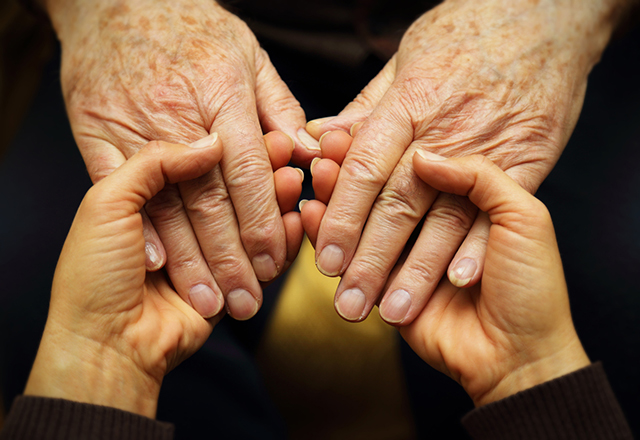Long before I realized that I loved science, I knew I loved people. The biology of neurodegeneration captured my mind, but that was long after the struggles of loved ones suffering from Alzheimer’s, Parkinson’s and multiple sclerosis imprinted on my heart. The prospect of helping them is what attracted me to neurodegenerative disease research, but this semester brought many humbling reminders that it is all too easy to lose sight of the bigger, human picture in translational research; too easy to focus on p-values without considering what that might mean for the grandparent, the neighbor, the friend who inspired me to take up this work.
Recently, I read a beautiful piece in The Atlantic by Sarah Zhang about the effect of prenatal genetic testing on parents’ decisions to birth or abort children with Down syndrome. It was a thought-provoking piece, equal parts biology, ethics and human interest. At one point, Zhang muses that “Down syndrome is defined and diagnosed by a medical system made up of people who have to be highly successful to get there, who likely base part of their identity on their intelligence. This is the system giving parents the tools to decide what kind of children to have. Might it be biased on the question of whose lives have value?”
While I am not a medical student and will never see patients, this quote resonated with me. This past semester, I took a course called Circuits and Brain Disorders directed by Marilyn Albert and Paul Worley focusing on translational neurodegeneration research. Guest lecturer Barry Greenberg shared a striking memory from an Alzheimer’s disease conference he attended some years ago. “A man at the poster session had a poster calling for researchers to stop looking for cures and start looking for interventions,” he recalled. “Everyone dismissed him, and I did too, until I went up to talk to him and learned that he was an Alzheimer’s patient. He knew a cure wouldn’t come in time for him, but he wanted something that could help him face the disease.” It is easy to get so focused looking for a cure that you devalue or ignore therapies that could have modest effects on patients’ quality of life, something that looks unimpressive on paper but might have profound impacts on people living with disease.
For example, my classmates and I were quick to reject the results of a study on speech therapy treatment for patients with primary progressive aphasia, a neurological syndrome that impairs language capabilities. We thought the reported mood benefits of the speech therapy could be explained by the social interaction inherent in the nature of the sessions rather than the treatment itself. But Dr. Greenberg pointed out that even if we were right, the effects of the treatment on the patients’ quality of life were remarkable considering the lack of an existing intervention for primary progressive aphasia. There was no numerical measurement for their subjective reports of improved mood and confidence, but those improvements were valuable all the same.
Dr. Greenberg’s insights changed the way I interpreted the data we reviewed in that class and the research I am doing in lab. What did significantly increased survival mean if it was a matter of a couple months, and came with insurmountable price tags and a decreased quality of life? And could social interaction that had no effect on the biology of a disease be more promising than a drug if it made the time a patient had left more meaningful from a patient’s perspective? By neglecting to consider the people living right now with these diseases, with no hope of a cure and no behavioral or occupational interventions to help them, am I not also imposing my biases on the very people I hope to help with my research?
The millions of people suffering from neurodegenerative disease have very different lives from mine. Those millions of lives, no matter what their ability level, matter. Those millions of lives have value. As I move forward in my graduate education and career, I hope to keep their humanity at the forefront of everything I do. I am learning to listen to people and not just numbers. In the end, I am not seeking a high-impact publication or a significant statistic. I am not seeking a cure or to alter lifespan or ability in a manner I find appealing. I am seeking to help people live their lives in the way they desire, and to do it with dignity.
Related content
- A Blood Test for Alzheimer’s Disease? Breakthroughs and Limitations
- Why Do Students Pursue a Ph.D. in Neuroscience?
- Drifting Through the Dark
Want to read more from the Johns Hopkins School of Medicine? Subscribe to the Biomedical Odyssey blog and receive new posts directly in your inbox.
